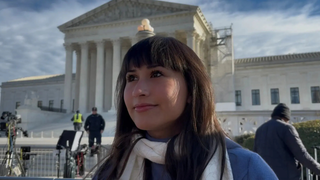
The world lost one of the greatest psychologists of all time to cancer one week ago. George Weinberg, Ph.D. was 87 when the disease ended his life and ended his career as a healer, which he had continued, deep into his ninth decade, until his last days.
George was one of my closest friends. He was a true genius.
As a gifted mathematician, he wrote a significant textbook on statistics.
As a psychologist, he helped thousands of patients, including some of the world’s most famous and gifted actors, journalists, business leaders and politicians.
Many of them know one another and know that George was their secret weapon against life’s most daunting challenges. He wrote transformational books on psychology, including the classic work, "Self Creation."
He also coined the term homophobia and toured the world to make sure the notion caught on, because he could not stomach the fact that gay people were being bullied over their sexual orientation.
In so doing, he, quite literally, lessened the suffering of tens of millions of people.
Yet, the accomplishments of George Weinberg were not the deepest foundation of my friendship with this extraordinary human being. Certainly, we laughed a great deal together. Surely, we disagreed about some issues, while reassuring one another that we remained kindred spirits.
But what drew us together most powerfully was the way he came to my rescue when depression visited me, about nine years ago.
It was then that we put on pause, for a time, our long talks about psychiatry and psychology and our lunches at The Carnegie Deli, with discussions that meandered easily from Shakespeare (another of his passions) to religion to current events, then back, again.
We moved our meetings, instead, to the inner sanctum of his office on the west side of Manhattan, surrounded by hundreds and hundreds of books he had read and a number of oil paintings and artifacts he had collected. And it was there that I learned the true magic of the man, as he became, for all intents and purposes, my doctor, and I, for all intents and purposes, his patient.
It was there that he helped resurrect me, with a veritable symphony of inquiry, empathy, self-disclosure, wit and wisdom, from depths of despair I had not known before and hope to never know, again.
I still remember the way George would nod and smile lovingly when I revealed a thought to him that I worried might betray something weak or ugly inside me.
His reactions were a promise that he had felt the widest range of emotions, had experienced the widest range of impulses and had heard all manner of them from others and that mine only made me more of a human being, not less.
And, then, he would put my thoughts and feelings into the context of his own long life, of great literature, of poetry and even of events from ancient history—not to make them less uniquely mine, but to bring me context for them, such that I felt not so alone.
He also promised me that I would recover my strength and advised that I should take care to remember well how low I was feeling, such that I could better resonate with the suffering of my own patients, in the future.
I did and I do—because of George.
There are many, many people in this world who can say, “because of George,” about some of the best parts of themselves. How glorious an epitaph is that?
I tell you all this partly to honor my exquisite friend, but also to share with you the restorative power of just one man—Dr. George Weinberg—in full command of the healing tools of psychology.
If you were to now, inspired by his story, read just one of his books or commit to exploring your life with a therapist who might have even some of his talent, then his legacy will be even greater.








































